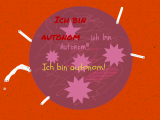
Telekom: ambitious 5-G expansion plan for Germany / Campus Networks in Hungary, the Czech Republic and Austria
26. Dezember 2019Telekom: ambitious 5-G expansion plan for Germany / Campus Networks in Hungary, the Czech Republic and Austria
Bonn, December 25, 2012
“Our technicians go full throttle and perform at their best. They ensure that millions of people who regularly move through Germany’s metropolises can benefit from our 5G top speeds. I am proud of the entire team. We are leaders in mobile communications – at LTE and also at 5G ”, said Telekom Germany boss Dirk Wössner
Telekom wants to reach the milestone of over 1,500 5G antennas in Germany by the end of 2020. The new mobile radio standard will then be available in all 16 state capitals. The Telekom 5G network is already available in Berlin, Bonn, Darmstadt, Munich and Cologne. Hamburg, Frankfurt and Leipzig are to follow later this year. “With our 5G expansion, we want to enable our customers to really experience the new technology right from the start. That is why we rely on coherent areas instead of highly distributed individual spots, ”says Walter Goldenits, Head of Technology at Telekom Germany.
According to Telekom, the network achieves peak transmission rates of up to 1 gigabit per second via 5G. In addition to speed, the new mobile radio standard also brings higher capacities and significantly shorter response times, so-called “latency”. This low latency makes the 5G standard particularly interesting for real-time transmissions in industry.
For 5G, Telekom uses 4G locations in the first step. Because the new technology is synchronized via LTE and brought online. Telekom is building the 5G antennas in addition to the ongoing LTE expansion.
Throughout Germany, the group is planning up to 10,000 new LTE mobile communications locations over the next four years – half of them in rural areas. There are also several thousand LTE extensions to existing masts. LTE coverage is already 97.9 percent of the population. Three quarters of Telekom’s approximately 30,000 mobile phone locations are technologically ready for 5G.
Campus networks * in Hungary, the Czech Republic and Austria
The Telekom subsidiary Magyar Telekom and T-Systems Hungary have provided a campus network for the automotive supplier BorgWarner. There, the network is now being tested together under real conditions at the BorgWarner Oroszlány GmbH location. According to Telekom, this is a unique test – not only in Hungary, but in all of Central Europe. The network is used in two areas of application: in intralogistics (reading out barcodes, automated material handling) and in production control (data connection with PLC). This also includes monitoring production. The campus network is currently still using LTE. According to Telekom, it can be converted to 5G in the future.
In the Czech Republic, T-Mobile Czech Republic a.s. and the Technical University of Ostrava sign a memorandum. The first campus network in the Czech Republic is to be created, which will only partially cover the university campus. The network will be part of a test field for digital production, in which the cooperation partners want to demonstrate Industry 4.0 principles. The Technical University of Ostrava is currently building a building for a smart factory. It will house a digital workplace with components for robotics, autonomous transport systems and other Industry 4.0 elements. The factory’s private campus network is scheduled to go into operation in the second quarter of 2020.
In Austria, Magenta Telekom is said to be involved in the first 5G campus network in the Alpine Republic. In the first half of 2020, the research and learning factory „smartfactory @ tugraz“ at Graz University of Technology is to be equipped with 5G technology from Magenta Telekom. In the future, 19 partners at the university will work on the digital integration of systems in an industrial learning and research environment. A production line with robot arms, metal 3D printing, robotics for various applications, edge computing and RFID applications is being created.
* Campus networks (CAN) are limited to shorter distances (approx. 2 km) and relate to a specific geographical area such as a university campus, building, company complex or industrial park. Campus networks can connect the local networks in buildings or floors, of research and production facilities with each other. Such networks do not use the public telecommunications area.


